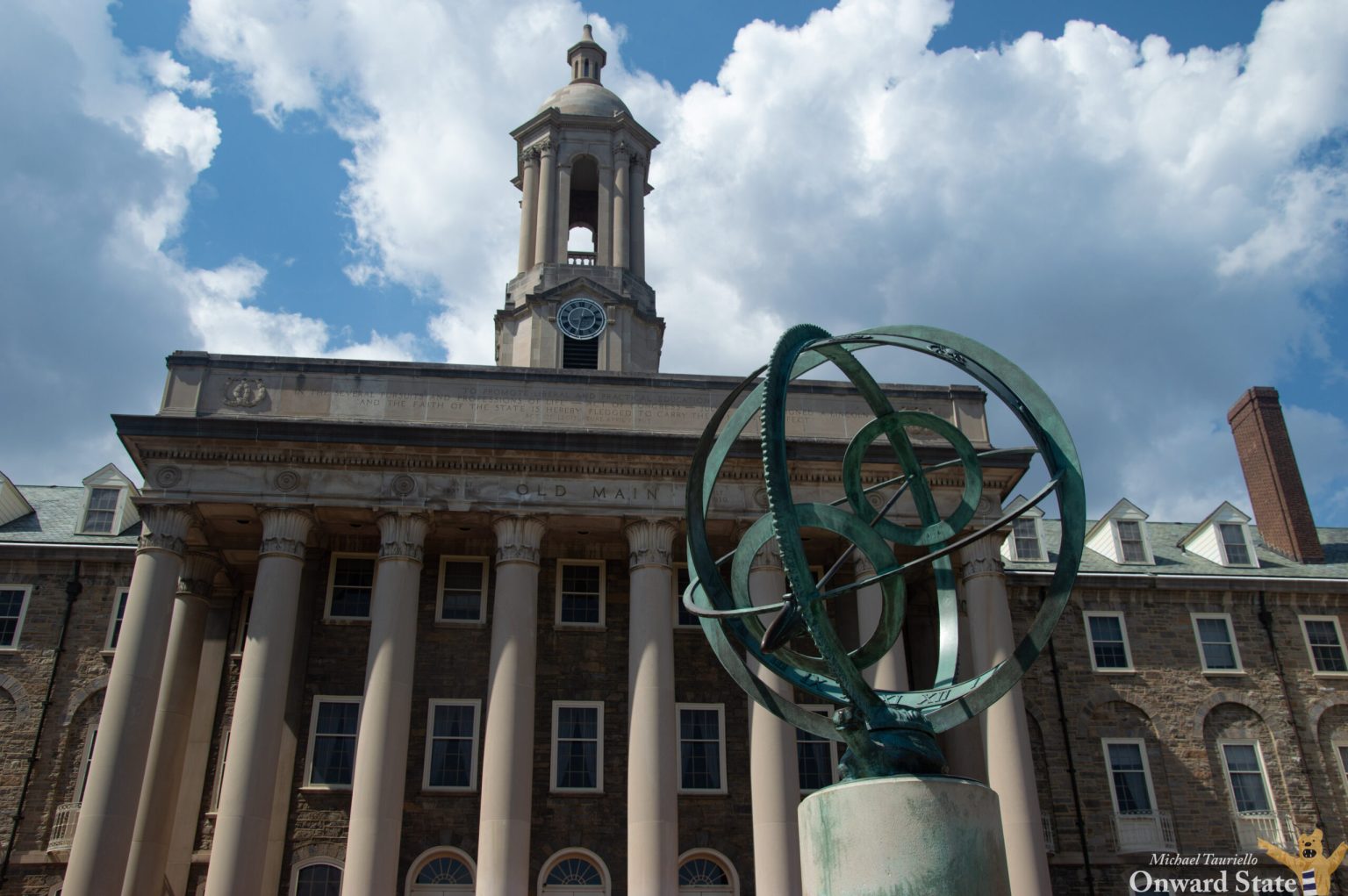Penn State and Pennsylvania’s three other state-related universities plan to move forward with tuition hikes despite a call from House Republican leaders to use a one-time infusion of millions in federal stimulus dollars to reverse course.
Gov. Tom Wolf is directing more than $30 million in American Rescue Plan funds to Penn State, Pitt, Temple and Lincoln, matching the 5% increase he had requested for the schools in his February budget proposal. The budget passed by the General Assembly and signed by Wolf earlier this month kept general state appropriations flat for the state-related universities, including $242.1 million for Penn State.
The funding boost flew under the radar when the budget was approved, by a spokesperson for Senate Republicans told Spotlight PA there was an understanding the money would go to the universities.
House GOP leadership, including Majority Leader Kerry Benninghoff, R-Bellefonte, sent a letter to the leaders of each university on Wednesday urging them to roll back their tuition increases for 2022-23. State Sen. Doug Mastriano, the Republican nominee for governor, sent a similar letter earlier in the week.
“…[G]iven that this additional funding equates to the 5% funding increase each of your schools sought at the start of the budget process, we encourage each of you to freeze already-announced plans to increase tuition at your institutions or stop consideration of tuition increases,” they wrote.
Penn State, which is slated to receive at least $12.1 million in additional funding, responded the same day. President Neeli Bendapudi wrote in a letter that the university had not received official confirmation of the funds but that “we will absolutely put them toward supporting student success,” once any stipulations for how they must be used are made clear.
But, she wrote, it remains “critical,” the university continue forward with the tuition schedule approved by the Board of Trustees last week.
“This infusion of one time funds, though, will not eliminate the larger financial pressures the institution is facing,” Bendapudi wrote.
Tuition at University Park will include a 5% increase for in-state students and a 6% hike for non-Pennsylvania residents. Tuition at the Commonwealth Campuses will increase by 2% for in-state undergrads and 3% for out of state.
The increases will not apply, however to students from households earning $75,000 or less per year, which is above the state and national median income. Penn State says it will use an additional $14 million budgeted for student aid to provide grants that will offset the increase.
Representatives for Pitt, Temple and Lincoln told the Associated Press and PennLive that each of the schools planned to move forward with tuition increases. Pitt plans to use its additional $7.7 million for financial aid and outreach. A Temple spokesperson said that because its $7.9 million is one-time funding it would “it would not be prudent for us to use it as part of our recurring operations” Lincoln President Brenda Allen said the university’s 3% tuition increase applies only to new students but did not specify how it would use its extra $758,000.
The Pennsylvania College of Technology, a subsidiary of Penn State, also will receive
House Republican leaders wrote that in some instances the universities cited stagnant state funding as a reason for increasing tuition for the coming year, but now will have the increases they sought. They added that the endowments at Pitt and Penn State are larger than that commonwealth’s Rainy Day Fund.
“Rather than take a punitive posture towards Pennsylvania’s students and families attending your institutions by raising tuition and fees, the recent funding news coupled with large endowments upon which you can rely to help offset inflation-led cost increases makes now the perfect time to reverse course on tuition increases,” they wrote.
During a presentation to the Board of Trustees and again in her letter to the House leaders, Bendapudi said a number of factors, including flat state appropriations for three consecutive years, played a role in the decision to increase tuition.
“As noted during our July Board of Trustees meeting, in addition to stagnant funding from the commonwealth for the third year in a row, these challenges include nearly unprecedented inflationary cost increases this year; prior tuition freezes in three of the past four years; and increased costs, lower revenues and lower enrollments partially due to the pandemic,” Bendapudi wrote The University has also been operating at sub-inflation for both tuition and state appropriations for more than a decade.
As Penn State officials have repeatedly stressed over the years, and as Bendapudi wrote in her letter, about 99% of Penn State’s endowment is donor-restricted and cannot be used on a discretionary basis for general operations.
“The endowment consists of thousands of individual contracts with these generous donors that stipulate how their contributions are spent; the majority of these funds are used to offset the cost of attendance for students,” she wrote. “Last academic year alone, we used $67.8 million in endowment earnings to support 17,255 students through scholarships and fellowships.”
Noting that Penn State receives the lowest lowest per-student funding of any public university in the commonwealth while educating the most Pennsylvania residents of any school, Bendapudi told the legislators she will need their help in the coming years “to address a historical trend in state allocations that creates meaningful additional pressure for Penn State to raise tuition.”
“I am sincere in saying that student access and affordability is a paramount priority,” Bendapudi concluded. “I ask for your trust in me to do what is best for the university, always meaningfully considering the impact on the students and families of Pennsylvania. I would like to extend to each of you, as a group or individually, an invitation to meet, together with our chief financial officer, to share more details on our plans for supporting Penn State students and sharing more information about our budget and its challenges.”



